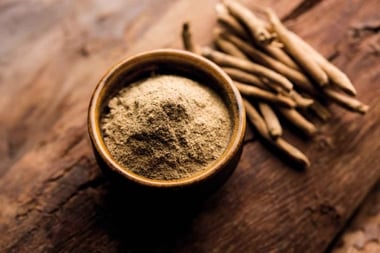Eating Well For Two
The earliest weeks of pregnancy are a critical time for fetal development. In fact, you'll need to start taking care of yourself before you even conceive in order to have the healthiest pregnancy possible. Nutrition will be key to helping you keep your growing baby healthy and safe while inside the womb.
The earliest weeks of pregnancy are a critical time for fetal development. In fact, you’ll need to start taking care of yourself before you even conceive in order to have the healthiest pregnancy possible.
Nutrition will be key to helping you keep your growing baby healthy and safe while inside the womb. Pregnancy should be a time to optimize your health. There are some supplements, loaded with vitamins and minerals, which can be helpful during pregnancy, labour, and delivery.
Good for Baby and You
Iron is an essential nutrient required to maintain the health of both the mother and the developing baby. Whole grains are a good source of iron, as are protein-rich foods such as lean red meat, poultry, and fish. A variety of liquid iron supplements made from fruit extracts are available.
Red raspberry leaf tea is believed to be a uterine tonic that can help strengthen capillaries and aid in birthing and recovery afterward. It is a rich source of vitamins C and E and contains some levels of A and B, in addition to phosphorus and calcium. This tea can also ease nausea during pregnancy and is known to reduce the pain of labour.
Natural Cures for Pregnancy Side Effects
Some women experience morning sickness–nausea and vomiting in the morning during the first and, sometimes, the second trimester of pregnancy. For some, “morning” sickness may be experienced throughout the day. Walking at least a half hour a day in the fresh air, weather permitting, is a superb way to get your circulation going. Increase the amount of the B-complex vitamins and iron in your diet, and try to avoid cooking, eating, and smelling greasy and spicy foods.
Heartburn during pregnancy can be alleviated by avoiding large meals; instead, eat small meals frequently. Avoid foods that seem to cause the heartburn. Some fruits, such as papaya, apple peels, and pineapple have natural digestive enzymes that can help digest food. Sipping yogourt, sour cream, or kefir can relieve heartburn caused by the overproduction of stomach acids.
Hormonal changes and increased iron intake from prenatal vitamins can cause constipation in the mother. To counter this, exercise regularly, and include plenty of fibrous foods such as fruits and vegetables in your diet. Also beneficial are time-tested remedies such as eating prunes and other dried fruits. Most importantly, be sure to drink plenty of water–at least eight glasses a day.
Special Precautions
During pregnancy, you should be mindful of everything you consume, be it food or medicine. As with any medicine, herbal remedies should be used with caution during this time. Many herbs and natural remedies can be safely employed, but seek the advice of a natural health practitioner before taking any herbal supplement during pregnancy.




